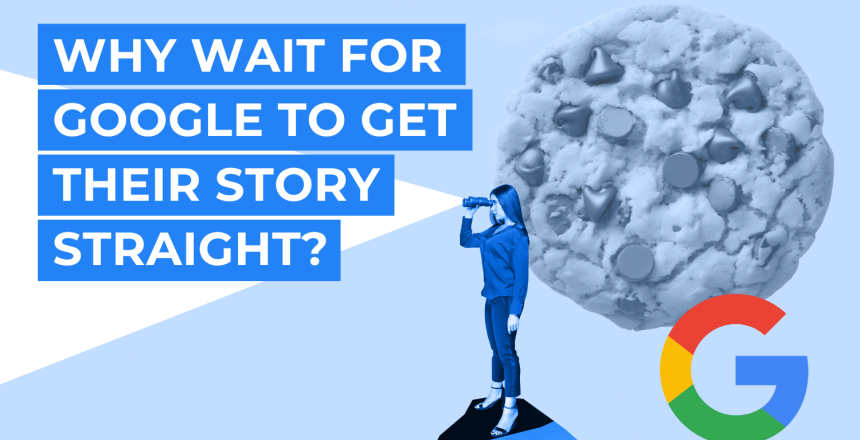Google recently made an announcement that has everyone talking: they might not be eliminating third-party cookies after all. This unexpected twist has left many wondering what it means for the future of online advertising with Google.
Why the sudden change of heart? Does this mean all digital marketers can breathe a collective sigh of relief? Not quite.
Cookies, even if given the pass from Google, still pose significant challenges to the ad industry by promoting fraud and draining ad spend.
Google’s Cookie Conundrum
Instead of phasing out third-party tracking cookies from its Chrome browser as initially planned, Google claims it will now introduce a feature that allows users to choose how they want to be tracked across its search products. This surprising move marks another chapter in Google’s ongoing struggle with cookies.
Here’s a quick timeline of the cookie saga:
- 2020: Google first announced plans to eliminate third-party tracking cookies from Chrome by 2022.
- 2022: The deadline was pushed back as Google began rolling out its Privacy Sandbox initiative. This set of proposals aimed to create alternatives to tracking cookies and was developed with input from the ad industry.
- 2023: The deadline was extended again, this time to 2024.
- 2024: After initially extending the deadline once again to 2025, Google has now decided to abandon the plan to remove third-party cookies altogether.
Despite efforts to test and implement cookie-replacement technologies through the Privacy Sandbox, none of these solutions have received full support from industry partners and regulators. As a result, Google’s latest decision has left many advertisers and publishers navigating a continued reliance on third-party cookies, adding to the uncertainty about the future of digital advertising.
What are Third-Party Cookies?
Third-party cookies are small pieces of data placed on your browser by websites other than the one you’re currently visiting. They’ve long been used in digital advertising to track user behavior across different sites, helping advertisers deliver targeted ads based on your browsing history and preferences.
However, third-party cookies come with several significant issues:
- Privacy Concerns: As these cookies track users across multiple sites, they collect a vast amount of data about individuals without their explicit consent. This has raised serious privacy concerns and led to stricter data protection regulations.
- Ad Fraud: Third-party cookies are also prone to misuse. Ad fraudsters exploit these cookies to generate fake impressions and clicks, wasting advertisers’ budgets on non-existent or irrelevant traffic.
- Wasted Ad Spend: Because third-party cookies often rely on broad, less accurate data, advertisers can end up spending money on ineffective ads that don’t reach their intended audience. This inefficiency results in wasted ad spend and lower ROI.
Given these challenges, it’s clear that advertisers need to adapt to evolving privacy standards and seek alternative methods for reaching their target audiences. The move away from third-party cookies is not just a regulatory requirement but also an opportunity to build more effective and privacy-conscious advertising strategies.
We’re Cookie-Free (And Always Will Be)
At Bridge, we’ve always stood firm against using third-party cookies. From the beginning, our focus has been on leveraging people-based, first-party data strategies, steering clear of the limitations and issues associated with traditional cookie-based tracking.
Our reliance on people-based strategies and commitment to high quality, first-party data helps protect businesses from the risk of ad fraud while improving the efficiency of their ad spend. By providing more accurate and relevant targeting, we’re connecting your ads with those most likely to engage with your brand.
Ditch the Cookies: Embrace a Better Ad Future with Bridge
While cookies have long been the go-to tool for advertisers, they come with significant issues like privacy concerns, ad fraud, and wasted budgets.
Bridge stands ready to lead this change with our commitment to first-party data strategies. By adopting our dependable, cookie-free targeting approach, you can navigate the complexities of modern advertising with confidence.
Partner with Bridge to experience the benefits of a more transparent, efficient, and privacy-conscious approach to digital advertising. Let’s work together to build a better future for your advertising efforts.







